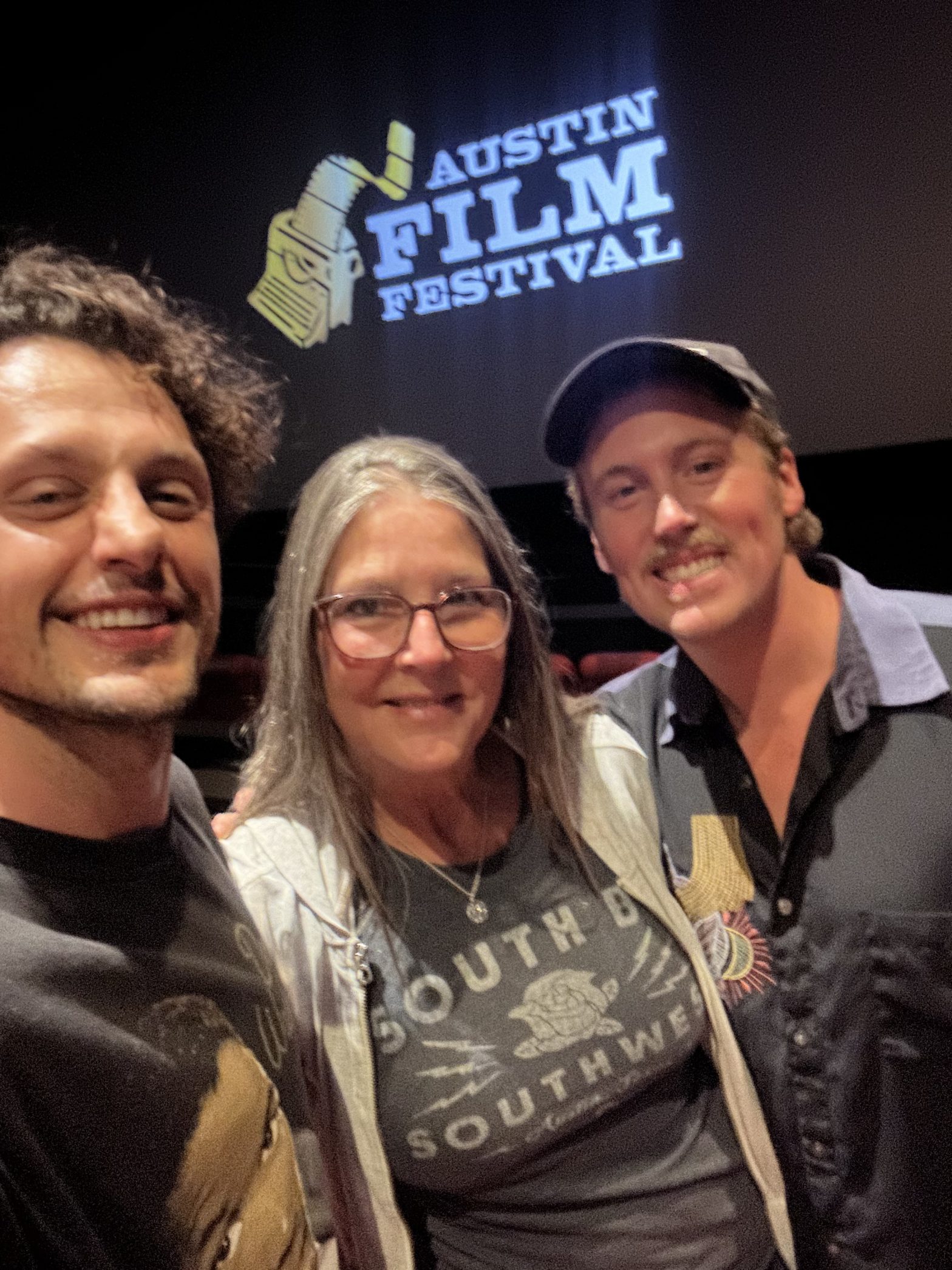Director Michael Vlamis’ ‘Crossword’ is an elegantly crafted thriller that dives into the haunting complexities of grief, obsession, and the painful fragmentation of a family dealing with the worst imaginable tragedy. The story follows Tessa (Aurora Perrineau) and James (Michael Vlamis), a couple torn apart by the accidental drowning of their young daughter. Each character clings to a form of solace: Tessa throws herself into her beloved children’s book series, Lily Learns, while James finds himself becoming unhealthily engrossed in his daily crossword puzzle—a task that soon takes on a disturbing life of its own, pulling him into a sinister spiral.
The film’s heart lies in the couple’s diverging paths and how they cope with loss. As Tessa’s work allows her some sense of control and purpose, James’ interaction with the crossword puzzle suggests a descent into madness, where reality and illusion blur. During a Q&A session at the film’s screening, director Vlamis shared that his inspiration stemmed from a personal tragedy, describing a harrowing experience of losing a friend who died in his arms. Co-writer Kyle Anderson added another chilling layer, mentioning that the leading cause of death among children under five is drowning—a fact that casts a heavy shadow over Crossword and deepens its resonance. The result is an emotionally charged thriller that’s suspenseful and lingers as a haunting reminder of loss and vulnerability.
Perrineau and Vlamis deliver powerhouse performances that root the story in real, relatable human emotion. Their connection feels painfully genuine, portraying both the need for connection and the corrosive effects of unresolved grief. Tessa’s immersion in her work reflects her desire to escape into a structured, controlled world where she still holds some creative power. Her husband’s struggle, in contrast, is expressed through his relentless fixation on the crossword, which grows into a metaphor for his fractured mental state. The audience is left to wonder: is James’s descent a coping mechanism, or has he genuinely crossed into a world of delusion? This ambiguity, coupled with Vlamis’ masterful visual storytelling, invites viewers to make their own interpretations—a subtlety that only enriches the film’s allure.
The cinematography in ‘Crossword’ stands out, crafting an atmosphere that is both beautiful and unsettling, framing James’s obsession in ways that reflect his inner turmoil. The film uses clever camera work and visual cues to intensify psychological tension. In one moment, the camera zooms in on James’s face, emphasizing the claustrophobia of his mental state. At the same time, in other scenes, wider shots reveal his isolation in a familiar yet hauntingly foreign setting. This technique effectively blurs the lines between his real world and the otherworldly one he believes is forming around him. The camera angles mirror James’s struggle between clinging to reality and surrendering to his increasingly distorted perceptions.
The film’s sharp and unflinching writing allows moments of silence and dialogue to do the heavy lifting. Vlamis and Anderson skillfully construct a narrative that balances tension with genuine emotional depth, giving space for both main characters to express their individual experiences of grief. Each line, whether spoken or unspoken, becomes a piece of the puzzle that the audience is left to decipher—adding to the suspense and making ‘Crossword’ a gripping experience from beginning to end.
Supporting actors Harvey Guillén and Nick Thune add layers to the story, their performances enhancing the emotional stakes and providing counterpoints to the couple’s unraveling. The contrast between the stoicism of the secondary characters and the intensity of the leads amplifies Tessa and James’s disconnection from the world around them.
‘Crossword’ resonates long after the credits roll, a testament to the power of personal storytelling combined with skilled cinematic execution. Vlamis’s choice to weave his grief into the film’s fabric infuses it with an authenticity that hits home, reminding viewers of the universality of loss and how we struggle to cope. This isn’t just another thriller—it’s a beautiful, haunting exploration of human vulnerability, brought to life by a talented cast and a committed creative team. Though it may be unattached to a major studio, ‘Crossword’ feels like a film destined for broader recognition. Its chilling story, meticulous visuals, and raw performances make it a memorable, meaningful addition to the psychological thriller genre.
